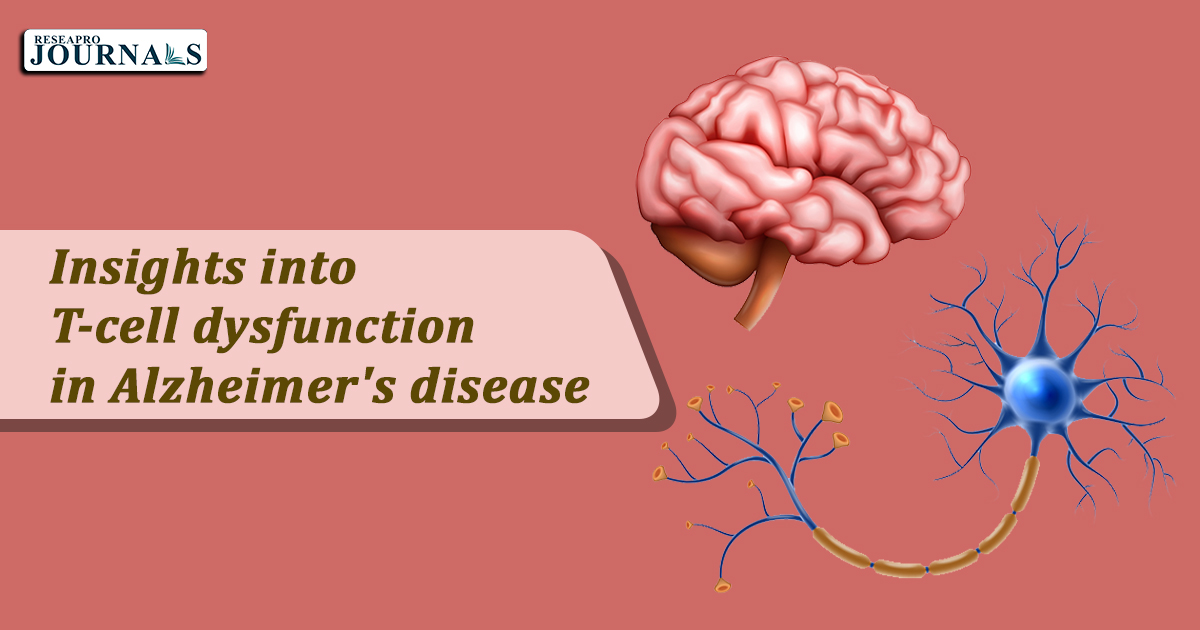T cells, the critical immune cells of the adaptive immune system, are often dysfunctional in Alzheimer’s disease (AD) and are involved in AD pathology. Reports highlight neuroinflammation as a crucial modulator of AD pathogenesis, and aberrant T cells indirectly contribute to neuroinflammation by secreting proinflammatory mediators via direct crosstalk with glial cells infiltrating the brain. However, the mechanisms underlying T-cell abnormalities in AD appear multifactorial. Risk factors for AD and pathological hallmarks of AD have been tightly linked with immune responses, implying the potential regulatory effects of these factors on T cells.

